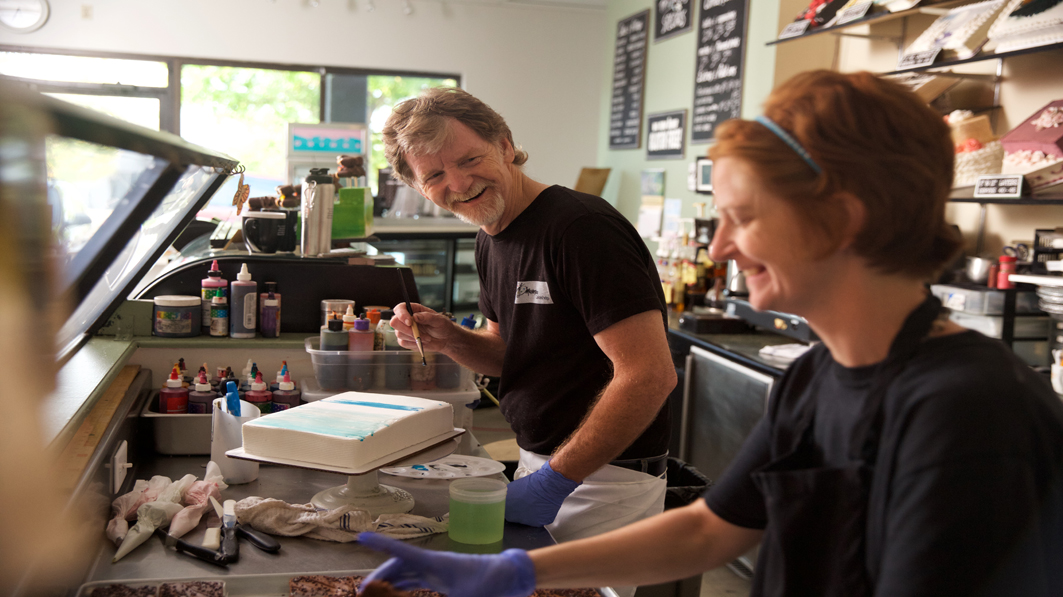The Decision
On June 4, 2018, the U.S. Supreme Court decided an important religious freedom case, Masterpiece Cakeshop v. Colorado Civil Rights Commission. The case involved a Christian baker, Jack Phillips, the owner of Masterpiece Cakeshop near Denver, Colorado. The Court decided in favor of Phillips in a 7-2 vote.
The Issue
The primary issue before the Court was this question: Can the government require a baker to create a one-of-a-kind wedding cake for a same-sex couple, when to do so would violate the baker’s deeply held religious beliefs concerning the nature of marriage? The Constitution’s First Amendment guarantees that government cannot compel speech, even expressive or symbolic speech, from an unwilling speaker, and it also guarantees protection from government hostility toward a person’s religious beliefs.
What the Court Decided
The Court’s decision in Phillips’ favor can be summarized as follows:
The Colorado Civil Rights Commission violated Phillips’ freedom of religion in two ways: 1) by treating his claims with hostility rather than as a neutral arbiter, and 2) by treating similar cases before it differently than how the Commission treated Phillips’ claim. (Specifically, similar claims against other bakers for not making cake with messages opposed to homosexuality were disregarded by the Commission.)
What the Court Did Not Decide
The Court bypassed Phillips’ free speech claim with its decision, claiming that the facts involved with that claim were still somewhat murky and not agreed to by the parties to the dispute. This leaves the issue of compelled speech for another day, and another lawsuit.
What the Decision Means for Christians
Many news outlets and analysts have reported that this is a “narrow decision” that doesn’t apply to future cases. That’s way too simple. For Christians concerned whether this decision goes far enough toward protecting people of faith, there is encouraging news.
Here are the takeaways from the decision that will affect future litigation in this area, and in addition, will hopefully guide future public discussion about the issues that prompted this case:
- The First Amendment is still strong and vibrant. The Court affirmed the guarantees of free speech and religion as hallmarks of our Constitutional framework.
- Non-discrimination laws are important protections for everyone, including homosexuals, but so is the First Amendment. These rights must be balanced to protect the dignity interest of homosexuals as well as people of faith.
- Cultural tensions are running high over the clash of rights at issue in these wedding vendor cases. The Masterpiece Cakeshop decision speaks an important message affirming religious freedom at a time when it has become fashionable in some government and private sectors to declare it outmoded and unworthy of protection.
- Because the Court emphasized the need to balance competing rights, we have a talking point for engaging the culture – including legislatures and courts – with a message that, yes, we can create laws and enforce Constitutional guarantees in such a way that everyone is respected, and compromises and accommodations can be agreed to, as a peaceful way forward.
Photo from Alliance Defending Freedom.






